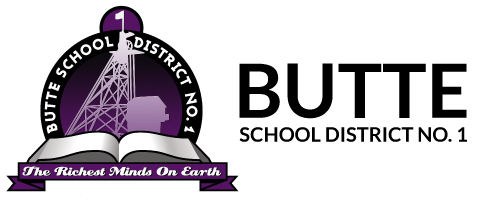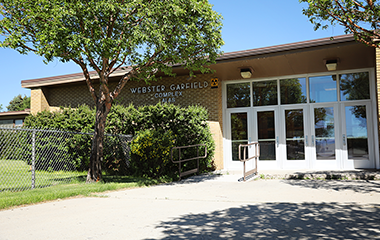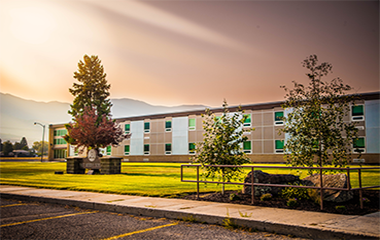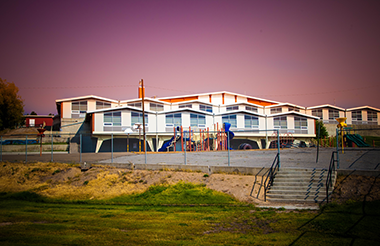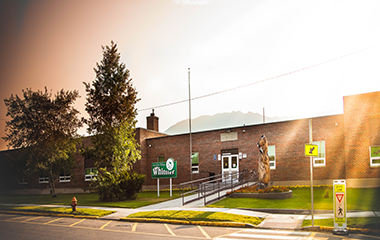Butte School District
THE BOARD OF TRUSTEES
3416
Administering Medicines in the School Setting
“Medication” means prescribed drugs and medical devices that are controlled by the U.S. Food and Drug Administration and are ordered for individual student(s) by a healthcare provider with prescriptive authority. This includes over-the-counter medications and/or supplements prescribed by the student’s healthcare provider.
1. No medications (prescription or over the counter) with the exception of stock epinephrine auto injectors in accordance with Protocol 3416F-G and 20-5-421, Section 2, MCA and standing orders stock medications/treatments in accordance with protocol 3416F-I will be administered in the school setting without the following:
a. Written order from a health care provider with prescriptive authority including the student’s name, medication, dose, route, and time the medication is to be administered at school
b. A school medication policy signed by the parent/guardian
c. The prescribed medication must be provided to the school in the original medical device or pharmacy labeled container
2. Under special circumstances, a willing school employee may be trained or educated at the discretion of the school nurse to administer medications in the school setting in adherence with state nursing practice acts and the applicable state laws and regulations.
3. No school employee except a registered nurse may administer a drug or prescription drug to a pupil under this policy without completing medication administration training by the school nurse. (3416F-A
4. Each student occupied school will maintain a limited stock supply of auto injectable epinephrine to be administered by the school nurse or other authorized personnel to a student or non-student for perceived or actual anaphylaxis in accordance with Protocol 3416F-G and 20-5-421, Section 2, MCA. Each student occupied school will also maintain a limited supply of standing orders stock medications/treatments per protocol 3416F-I
Administering Medication
The District will permit the administration of medication to students in schools as stated above, pursuant to the written authorization of a health care provider with prescriptive authority, as well as the written authorization of a parent or guardian, and the school nurse (3416F-B) and/or 3416F-I. The school nurse may administer medication to a student in the school setting or may educate or delegate this task pursuant to Montana law and Montana State Nursing Practice Acts to a school district employee.
Emergency Administration of Medication
1. In case of a diabetic, allergy, asthma, sustained seizure or anaphylactic reaction or the risk of such reaction, a school nurse may administer emergency oral, inhaled, rectal, and/or injectable medication to a student in need thereof on the school grounds, in the school building, or at a school function, according to the written order of a health care provider with prescriptive authority. See 3416 Form F re: administration of glucagon.
2. In the absence of a school nurse, the administrator or designated staff member exempt from the nurse license requirement under § 37-8-103(1)(c), MCA, who has completed education in administration of emergency medication (by the school nurse), may give emergency medication to students orally, by inhalation, rectally, or injection. There must be on record a medically diagnosed condition, which would require prompt treatment to protect the student from serious harm or death, with the exception of a student or non student presenting or experiencing signs or symptoms of perceived or actual anaphylaxis in accordance with Emergency Protocol 3616F-G.
3. Record of all medications administered in the school setting will be entered on an Individual Student Medication log (See 3416 - Forms C, D, and E) or 3416F-I standing order log.
Assisted Medication Delivery
A building administrator collaboratively with a school may authorize an employee to assist a student with administration of medication(s). The employee must be willing to perform the task, receive education or training by the school nurse, be deemed capable of performing the task by the school nurse, and the parent/guardian of the student is aware assistance by a non-nurse is utilized to deliver the medication(s). Assisted medication administration may include the following provided the medication (prescribed or over the counter) includes a written order by a health care provider with prescriptive authority and a school medication policy completed by the parent/guardian of the student for the ordered medication:
• Verbal prompting, reminding, or gesturing for administering the ordered medication(s) provided in the medical device or original pharmacy labeled container
• Handing to a student a prefilled and labeled medication holder, opening a lid for a student, assisting with the removal of a medication from a container for a student with a physical disability that prevents independence in the act
Self-Administration or Possession of Medication Including Prescribed Over the Counter, Scheduled and/or As Needed Emergency Medications for Asthma, Allergy, Anaphylaxis, or Diabetes
Students who are able to self-administer specific medication may do so, and will be allowed to possess and self-administer emergency, “as needed” or scheduled medication during the school day, during field trips, school-sponsored events, or while on a school bus provided the following criteria are met:
1. A health care provider with prescriptive authority provides a written order for self-administration of said medication. The written notice from the student’s primary care provider must specify the name and purpose of the medication, the prescribed dosage, route, frequency with which it may be administered, and the circumstances that may warrant its use.
2. There is written authorization for self-administration of medication from the student’s parent or guardian acknowledging that the District or its employees are not liable for injury that results from the student self-administering the medication.
3. The prescribed medication must be in a container labeled and pre-filled by a pharmacy.
4. The principal, school nurse and appropriate teachers are informed that the student is self-administering prescribed medication.
Those students who will be self-administering medications and comply with 1-4 above – must return a completed Form 3416F- MTSBA.doc, or 3416B specifying SELF ADMINISTRATION, which must be renewed annually.
A student’s authorization to possess and self-administer medication may be limited or revoked by the building principal or other administrative personnel.
If provided by the parent or guardian, and in accordance with documentation provided by the student’s health care provider with prescriptive authority, backup medication may be kept at a student’s school in a predetermined location or locations to which the student and designated staff member has access to in the event of an asthma, severe allergy, anaphylaxis, or diabetic emergency.
Immediately after self-administering epinephrine during school hours, a student shall report to the school nurse or other designated adult at the school who shall remain with the student and make a 9-1-1 emergency call.
Handling and Storage of Medications
The parent/guardian or other responsible adult is advised to deliver all medications, including those approved for keeping by students for self-medication to the nurse or employee designated to assist with the administration of medication. The nurse or the designated employee will:
1. Examine any new medication to ensure that it is properly labeled with dates, name of student, medication name, and dosage, time of administration and health care providers’ name.
2. If administration is necessary, the nurse must develop a medication administration log for the student.
3. Record on the Student’s Individual Medication log the date and the amount of medication received.
4. Store medication-requiring refrigeration at 36 F – 46 F.
5. Store prescribed medicinal preparations in safe location(s) readily accessible to staff members trained and/or educated in the delivery of emergency medications in the school setting.
All medications, prescription and nonprescription, will be stored in their original containers.
Access to all stored medication will be limited to persons authorized to administer medications by the school nurse. Each school will maintain a current list of those persons authorized by delegation or education from a licensed nurse to administer medications.
Disposal of Medication
School personnel may either return to the parent or guardian or destroy (with permission of the parent or guardian) any unused, discontinued, or obsolete medication. Medicine, which is not repossessed, by the parent or guardian within a seven- (7)-day period of notification by school authorities or at the end of the school year may be destroyed by the school nurse in the presence of a witness. Additionally, medication will be destroyed by the school nurse in the presence of a witness in instances in which a student has transferred/relocated and there is no means to contact the parent/guardian to repossess the medication. Expired medications will be disposed of by the school nurse for safety purposes.
Legal Reference:
8.32.1701 - 1712, ARM Delegation and assignment
20-5-421, Section 2, MCA
Policy History:
Adopted on: 10/18/04
Revised on: 01/16/06, 11/19/07, 11/21/11, 3/18/14, 2/21/17
- 3102 - Attendance Area Policy
- 3102P - Attendance Area Policy Continued
- 3102F-1 - Request for Student Boundary Waiver (opens in new window)
- 3102F-2 - Request for Student Records (opens in new window)
- 3102 F-3 Special Power of Attorney for temporary custody assignment
- 3102F-4 - Student Transfer Form (opens in new window)
- 3110 - Entrance, Placement & Transfer
- 3120 - Compulsory Attendance
- 3121 - Enrollment & Attendance Records
- 3121F - Education Authorization Affidavit (opens in new window)
- 3121P - Enrollment & Attendance Records Continued
- 3122 - Attendance Policy
- 3122P - Attendance Policy Continued
- 3125 - Education of Homeless Children
- 3125F - McKinney-Vento Homeless Education Assistance Dispute Resolution Form (opens in new window)
- 3130 - Students of Legal Age
- FP-14.1 Out of District Attendance Agreement (opens in new window)
- 3141 - Discretionary Nonresident Student Attendance Policy
- 3141 F-1 Application for Out of District Attendance (opens in new window)
- 3141 F-2 FP-14.1 Parent or District Student Attendance Agreement FY2026 (opens in new window)
- 3141 F-3 - FP-14.2 Foster and Group Home Student Attendance Agreement FY2026 (opens in new window)
- 3141P - Nonresident Student Enrollment
- 3145 - Foreign Exchange Students
- 3150 - Part-Time Attendance
- 3200 - Student Rights & Responsibilities
- 3210 - Equal Education, Nondiscrimination & Sex Equity
- 3215 - Uniform Grievance Procedure
- 3221 - Student Publications
- 3222- Distribution & Posting of Materials
- 3224 - Student Dress
- 3225 - Sexual Harassment/Intimidation of Students
- 3225F - Harassment Reporting Form for Students
- 3225P Procedure Sexual Harassment of Students
- 3226 - Hazing...
- 3231 - Searches & Seizures
- 3231P - Searches & Seizure Continued
- 3233 - Student Use of Buildings; Equal Access
- 3235 - Video Surveillance
- 3300 - Corrective Actions & Punishments
- 3300F - Notice of Hearing (opens in new window)
- 3300P - Corrective Actions & Punishments Continued
- 3310 - Student Discipline
- 3310P - Discipline of Students with Disabilities (opens in new window)
- 3330 - Use of Alcohol-Sensor Device
- 3403F - Student Participation Form
- 3403 - Extracurricular Participation
- 3405 - Missing School Children
- 3405P - Missing School Children Continued
- 3410 - Student Health/Physical Screenings/Examinations
- 3410FMedical Examination Notice Permission
- 3413 - Student Immunization
- 3413-F2 Religious Exemption
- 3415 - Management of Sports-Related Concussions
- 3416 - Administering Medicines to Students
- 3415P - Management of Sports-Related Concussions
- 3416F - Designation and Acceptance to Administer Glucagon
- 3416F-1 Standing Order-Administering Medicines to Students
- 3416F-2 Standing Order Log Sheet
- 3416F-A - Medication Administration Training Within the School
- 3416F-B - Administration of Liability Release & Medication Order
- 3416F-C - Daily Medication Log
- 3416F-D - Student Log for PRN - "As Needed" Medication Administration
- 3416F-E - Student Log for Emergency Medication Administration
- 3416F-G - Protocol for Emergency Use of Epinephrine for Anaphylaxis
- 3416F-H - Log for Administration of Stock Supply
- Addendum 3416F-I Stock Supply Naloxone
- 3417 - Communicable Diseases
- 3431 - Emergency Treatment
- 3440 - Removal of Student During School Day
- 3440P - Removal of Student During School Day Continued
- 3510 - School-Sponsored Student Activities
- 3510P - Requesting, Approving & Scheduling of Field Trips
- 3510F-1 - Application for Field Trip
- 3510F-2 - Parent Consent (opens in new window)
- 3510F-3 - Insurance
- 3520 - Student Fees, Fines & Charges
- 3520P - School Nutrition Services Procedures & Rules
- 3520F-1 School Nutrition Meal Agreement
- 3535 - Distribution of Fund Drive Literature Through Students
- 3530 - Student Fund-Raising Activities
- 3600 - Student Records
- 3600P - Student Records Continued
- 3600F-1 - Student Records Continued (opens in new window)
- 3600F-2 - Student Records Continued
- 3606 - Transfer of Student Records
- 3606F - Transfer of Student Records Continued
- 3608 - Receipt of Confidential Records
- 3610 - Programs for At Risk/Disadvantaged Students
- 3611 - Gangs & Gang Activity
- 3612 - District-Provided Access to Electronic Information, Services & Networks
- 3612F - Internet Access Conduct Agreement (opens in new window)
- 3612P - Acceptable Use of Electronic Networks
- 3630 - Cell Phones & Other Electronic Equipment
- 3615 - Crisis Intervention/Management
- 3650 - Pupil Online Personal Information Protection
- 3655 - Student Safety
This site provides information using PDF, visit this link to download the Adobe Acrobat Reader DC software.
